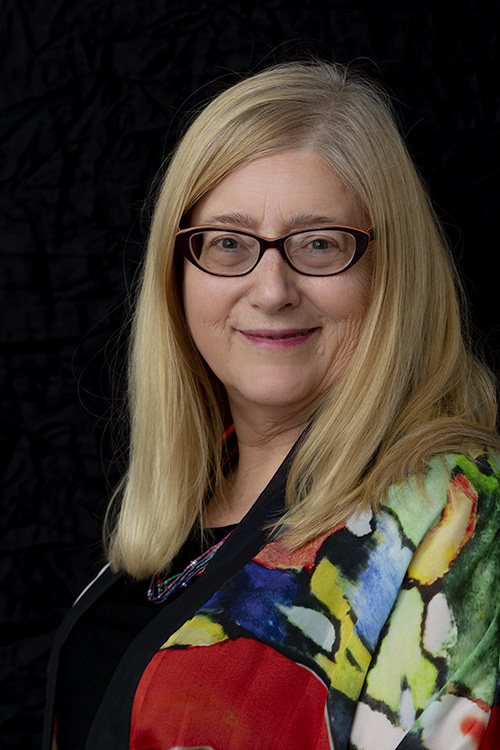That Great Retirement Not So Fast
At the start of the Industrial Revolution, early labor theorists saw the transition from small business owner to employee as a kind of limited servitude. When I read about that years ago it made a big impression, because it was clear that even as a professional, I gave up much of my agency when I accepted a job.
My career was spent in the maw of American work culture; a person’s worth was measured by how overburdened they were at the office. Corporate drones of my age cohort have many stories of missed events at our children’s schools for the sake of a deadline, or managers berating us for not answering a 3 AM email by 7 AM. One company I worked for was bought by a European conglomerate. Our corporate overlords sent us a To-Do list every July with the things they expected the Americans to accomplish while the Europeans took all of August as vacation.
Five years ago I shifted from American work culture into retirement. That was a whole journey, first of resting, then aimlessness, then looping in and out of consulting while rediscovering the self I was before I became a parent and a worker. For those of us steeped in an exaggerated work ethic, retirement requires, first and foremost, deprogramming ourselves from the work ethos of American life. In retirement we embrace our true values and authentic selves. That includes doing what we love simply for the sake of doing it.
Over the last two years of pandemic life, the rate of retirement doubled—a trend that has been dubbed the “Great Retirement.” But many people of working age also began to deprogram from the cult of work. The “Great Resignation” is the most visible facet of a large movement to regain agency in our lives. This cultural shift happened because people of every age came face to face with mortality. Twenty percent of Americans lost someone close to them in the pandemic. Life expectancy in the United States declined for the first time in decades. We Boomers, along with younger generations, have learned that life becomes more precious when there’s less of it to waste.
We can share valuable lessons with younger friends and family about the centrality of play, of goalless activities, in our lives. Reclaiming our time and learning to create without judgement is one of the great joys of older life, and if that freedom becomes more available to everyone it will be a blessing for our society.
That is how we made a kind of lemonade from the sour lemons of pandemic. But then came the war in Ukraine. For those of us who were Cold War kids, the unprovoked attack on Ukraine revives memories of squatting under schoolroom desks to practice for Armageddon. I grew up in a military town where children were told that our city was a prime target for Russian ICBMs. Even in fifth grade we knew our desks were no match. Along with those memories, this new conflict brought another unwelcome consequence for my age cohort: A big drop in our retirement accounts (for those of us fortunate to have retirement accounts). And for people their sixties, the sequence risk of a big drop now will affect our long-term outlook.
But right here I must stop complaining, because compared with the people from many countries who are fleeing for their lives, my concerns are miniscule. That is partly because the Great Resignation and the consequent worker shortage would make it easy for me to—gulp—go back to work.
Not that I want to. I have grown accustomed to writing whatever I please, when I please, as opposed to writing tech reports on a deadline. And I’m not alone, either in watching my retirement dwindle or in considering what it would be like to pause retirement in response. The return to work, if it happens, will be informed by the wisdom gained in retirement.
- I’ve come to define myself, not by work and not even by motherhood, but by my innate interests and talents.
- I’ve learned to value my time, not for what I can accomplish, but for its own sake.
- I’ve grown accustomed to setting my own priorities and saying no to projects that don’t fit my interests and values.
- I’ve realized how much I can accomplish when doing something I believe in.
- I’ve learned that accomplishment and monetary reward have only a tenuous connection.
- I’ve grown to appreciate looking at trees, and not to judge myself as “lazy” for enjoying nature.
- I’ve come to value my health, which means that I move my body every hour, and exercise each day, whether by hiking or going to the gym.
- I’ve learned not to hurry.
Those are the learnings I will bring with me if I go back to work for a time. I’ll be a different kind of worker, less willing to compromise my life for my earnings. If I go back to work, I will know that life is much bigger than my job. I will not answer a 3 AM email until business hours. I will not miss family events to earn money.
Mine is a position based on privilege. There are people out there taking the risk of setting boundaries around work without the financial stability I still enjoy. To them I say, Brava! And to all of us, let’s live our whole lives, not just our careers. If we who are retired go back to work for a time, let’s bring with us all that we have learned in our freedom. Work is not servitude. Whether we are consultants or employees, our skills are valuable, but not as valuable as the people we love — including ourselves.



6 Responses
Hi Stella! This is so thoughtful! Yes, it would be great if we can bring those values into the workplace, not just for us Boomers who may not desperately need a job, but for the younger worker who does. I’m glad you put our ‘problems’ next to those of people in Ukraine, to recognize the privilege of our position. Also loved the reminder of the air raid drills – only then, they never happened. I’m sure the Ukrainian children have no illusions about the protection of desks! Thanks!
Thank you, Carolyn! May we all live in the knowledge that each day is a privilege.
Great post, Stella! As one who has struggled to find her identity in retirement, I appreciate both your depiction of the competing feelings of a new retiree and your enumeration of the ways in which you have changed and benefited from retirement.
Hello Sue – Thank you for your kind words. May we all keep growing and finding our true path!
Wow Stella this is so on-point for me. I retired (again) just over a year ago – when I realized after a year of WFH that one of the main reasons I went back to work was to have an office to go to! I too have found that I now put a higher priority on my body and my health – and schedule time each day for exercise – my favorite is walking with friends.
As a career woman, I used to define myself by my job – and it has been challenging since I retired to respond when someone asks “What do you do?” (which can feel like the question “who are you?”) Your statement “I’ve come to define myself, not by work and not even by motherhood, but by my innate interests and talents.” is exactly what I am working on now – finding a way to define myself without reference to all of my roles – mother, wife, grandmother, etc – since I am much more than just my roles!
I think it is only in retrospect that I could see how much power I gave my job in my life – at the time I just thought that was the way a career woman would do it. I still remember my 10 year old son saying “You have a great half time job, Momi,” when I was working all day plus evenings at my job. When I asked him to explain further he said “Since you work only a block away you can work any 12 hours of the day that you want!”
Becki – I am so glad to hear you’ve redefined yourself by your own interests, and that you are prioritizing self-care. Walking with friends is such a great way to combine pleasure with pleasure! Retirement can be even sweeter the second time around.